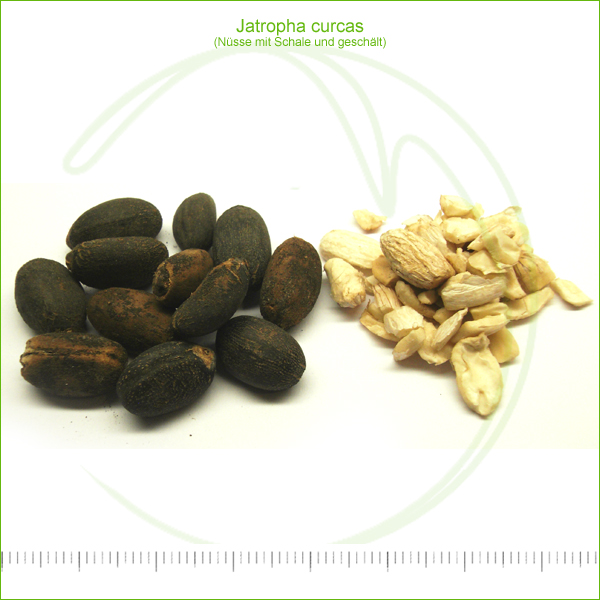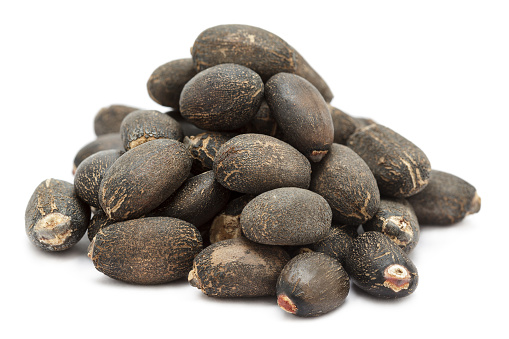
Oil extraction
If oil is to be extracted from Jatropha curcas, it is important to know that seed and oil yields vary greatly depending on the origin and growing conditions (climate, soil, planting distance, water supply and fertilization) of the Jatropha curcas plants. Seeds growing in tropical climates have a particularly high oil content.
The oil is extracted from the seeds by mechanical pressing.
Depending on the intended use, Jatropha / Purgier nut is pressed with or without the shell.
Oil presses for the processing of Jatropha
Properties and shelf life
Jatropha oil is a light yellow to almost colorless, semi-dry oil. However, it is almost odorless.
Since the toxins contained in the purging nuts get into the oil when it is pressed, this oil is not suitable for consumption. Jatropha curcas oil tastes pungent and has a strong laxative and emetic effect.
The fat composition of this oil consists of about 15 -17% palmitic acid, about 6 – 8% stearic acid, about 30 – 44% oleic acid, about 0.3% linoleic acid and also about 0.3% arachidic acid. The remaining 30 – 52% is formed by linoleic acid. Thus, the proportion of unsaturated fatty acids contained in the oil is much greater than that of saturated ones.
Use
In pharmacy and medicine
Jatropha oil is used in the fields of medicine and pharmacy. For example, it exhibits activity against the vector snail of schistosomiasis. This is of interest because schistosomes are endemic in very many tropical and subtropical countries, infecting more than 200 million people per year.
In folk medicine
In folk medicine, it is used as a laxative on the one hand, and is also used for skin diseases such as scabies, eczema and herpes, and also as a liniment for rheumatism.
Use as fuel
The seeds of the purging nut contain, in addition to an oil content of at least 30%, a cetane number of about 60, biodiesel from rapeseed oil has only about 54, which is why it is a very effective, technically usable vegetable oil. Especially in financially weak tropical countries, attempts are currently being made to process jatropha oil into biodiesel and cold-pressed vegetable oil, which could be used directly in specially adapted engines to save these countries the import of expensive crude oil. Attempts have also been made to develop a biological aircraft fuel consisting of half purging nut and half kerosene.
Other uses
Jatropha oil is also used in industry and technology as lamp oil, in the production of soaps, candles and paints, and in the manufacture of lubricants. In addition, because of its insecticidal effect, it can also be used as a biological pesticide. In addition, it is used in agriculture in Nigeria for mixing an arrow poison and as bait for guinea fowl.
The press cake, which is a by-product of oil pressing, is a very effective organic fertilizer.
We will be happy to advise you on this seed and show you options. Contact us
In addition to our own knowledge acquired through pressing experiments, the following sources were used to prepare this article:
- Öle, natürlich kaltgepresst, Basiswissen & Rezepte, Marcus Hartmann, Hädecke, 2008
- Heilende Öle, Pflanzenöle als Nahrungs- und Heilmittel, Neue Erkenntnisse, Günter Albert Ulmer Verlag Tuningen
- Lexikon der pflanzlichen Fette und Öle, Krist, Buchbauer, Klausberger, SpringerWienNewYork, 2008
- www.wikipedia.de
- en.wikipedia.org

